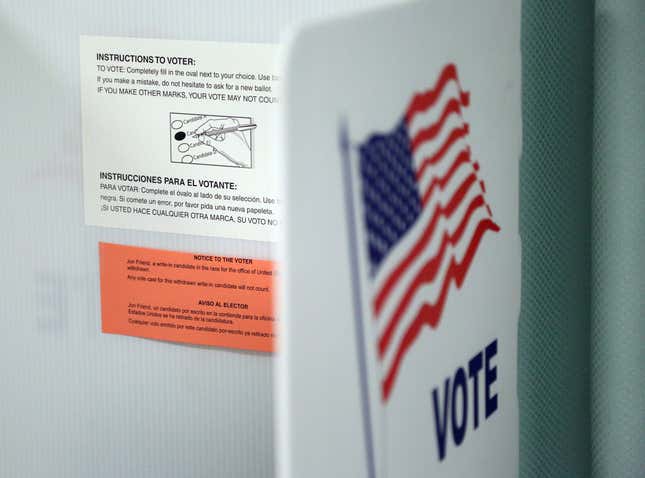
In 2018, Florida voters made a momentous decision: restoring the right to vote for those convicted of a felony, so long as they’ve fulfilled their prison time, parole or probation. But since then, the state of Florida has introduced what has been deemed as a modern-day voting tax for released felons, mandating that they pay back any legal fees or restitution they owe before they’re allowed in the voting booth.
On Thursday, the Supreme Court upheld those restrictions, striking a major blow against an estimated 774,000 disenfranchised felons, who will not be able to voice their political will until their debts are paid. The Court’s decision, made via an unsigned order, will mean the restriction will likely be in place until November, reports CNN.
Three out of four members of the court’s left wing, Justices Sonia Sotomayor, Ruth Bader Ginsburg, and Elena Kagan dissented.
“This Court’s order prevents thousands of otherwise eligible voters from participating in Florida’s primary election simply because they are poor,” wrote Sotomayor, who referred to the Florida law as a “voter paywall.”
“This Court’s inaction continues a trend of condoning (disenfranchisement),” she added.
As USA Today notes, most states restore felons’ right to vote once they fulfill their prison time, including their parole or probation. While many states have additional requirements, Florida is “among 11 states with the most restrictive rules,” the paper writes, citing the National Conference of state legislatures.
The financial restrictions were imposed by Florida’s GOP-majority legislature in 2019. But there was no system put in place to help those affected find out whether they owed money, causing greater confusion, reports The Washington Post.
This “administrative nightmare” was part of U.S. District Judge Robert Hinkle’s ruling against the state this past May. Hinkle found that requiring felons to pay fines and fees before voting amounted to an unconstitutional poll tax.
Sean Morales-Doyle of the Brennan Center for Justice told the Associated Press the high court’s decision “doesn’t mean we’ve lost—it’s just a stay.” The Center is among several groups representing the plaintiffs.
But, he cautioned, the ruling will likely discourage political participation because “there will be a lot of people who are unsure about their eligibility to vote...and will be unable to figure out if they are eligible.”
About 85,000 felons have registered to vote since Amendment 4 went into effect at the start of last year. The amendment, which passed with nearly 65 percent of the vote in 2018, excludes felons who have been convicted of murder or felony sexual assault.
As the Post notes, it’s unclear if the issue will be resolved by November’s presidential election, when the state is expected to be up for grabs. The issue will go before an appeals court again on August 18—the same day as the state’s primary election.

